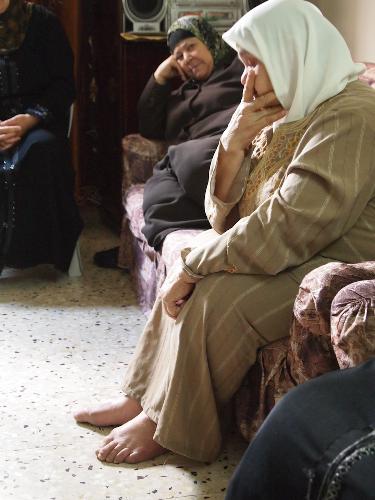Tag: Arrests
-
UPDATE: Cousins of teenager murdered at checkpoint arrested
18th May 2013 | International Solidarity Movement, Team Nablus | ‘Anabta, Occupied Palestine UPDATED: Two brothers of the arrested Deiyaa’ Nassar, cousins of the murdered Amer Nassar, were arrested last week Monday, May 13 past 2 am at night. Deiyaa’ Nassar, 19, and Fadi Abu-‘Asr continue to be held in Mejiddo Israeli prison as their…
-
Five men imprisoned after night raids in Beit Furik
14th May 2013 | International Solidarity Movement, Beit Furik, Occupied Palestine By Team Nablus On Tuesday 7th of May the Israeli army invaded Nablus and the nearby village of Beit Furik and arrested 9 men. The men, between the ages of 18 and 22, are all members of the PLFP. One man from Beit Furik…
-
Brother and sister arrested without charge in Kufr Qalil
12th May 2013 | International Solidarity Movement | Nablus, Occupied Palestine Team Nablus At 1:30 am on May 12, Israeli soldiers arrested a brother and sister from Kufr Qalil without charge and ransacked their home, terrorizing their family and leaving them with no information about the siblings’ imprisonment. Israeli soldiers arrived at the residence of…

